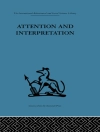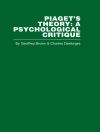Optimizing Teaching and Learning will serve as a practical guide for anyone, anywhere, who is interested in improving their teaching, the learning of their students, and correspondingly, contribute to the scholarship of teaching and learning.
- Bridges the gap between the research and practice of So TL
- Provides explicit instructions on how to design, conduct, analyze, and write-up So TL work
- Includes samples of actual questionnaires and other materials (e.g., focus group questions) that will jumpstart investigations into teaching and learning
- Explores the advantages and disadvantages of various pedagogical practices and present applications of So TL using case studies from a variety of disciplines
Tabela de Conteúdo
Preface viii
Acknowledgments xiii
1 What Is Pedagogical Research? 1
Multidisciplinary Roots of Pedagogical Research 3
Examining Definitions of Scholarship 4
The Other So TL: Action Research and Teacher Research 6
Beginnings 8
Why Is Pedagogical Research Important? 11
A Teaching Hierarchy 12
A Caveat 16
How Can Pedagogical Research Be Useful to You? 16
2 Pedagogical Research: Focussing on the Teaching 18
Assessing Our Teaching Effectiveness 20
What Can We Learn from the “Best” College Teachers? 25
Creating your Teaching Philosophy Statement 31
How Do I Teach? 33
Using Teaching Inventories 34
Determining Your Teaching Goals 38
Assessment Tools 43
Alternative Classroom Assessment Techniques 65
Teaching Portfolios 68
Learning to Conduct Pedagogical Research: How to Get Started: Designing Your Pedagogical Research Program 70
Developing Your Research Ideas and Questions 72
Focus on Student Learning: Connecting Your Learning Goals, Assessment Choice, and Teaching Technique 75
Applying the Findings of Your Pedagogical Research: Using General Principles of Learning to Making Changes to Your Teaching Strategies 78
Sharing Your Findings and Connecting with Others in the Field 81
Conclusion 84
Appendix: Examples of Discipline-Specific So TL Journals 85
3 Pedagogical Research: Focussing on Learning 87
What Do You Want to Find Out? 90
What Do We Know about How Students Learn? 91
Student Engagement: If You Engage Them, They Will Learn 94
How Can You Investigate Your Students’ Learning? 96
How Do Students Study? 103
Metacognition 104
Measuring Study Behaviors 110
Can You Improve Study Skills? 118
Key Psychological Factors Influencing Learning 119
Designing Your Research: How Do You Study Your Students’ Learning? 120
Measuring How Performance on Your Assessments Vary 125
Guidelines for Human Research Participants in So TL 131
A Further Note on Ethics 132
Conclusions 141
Appendix: Questions on How to Make Cognitive Research Available to Educators 141
4 Is It Significant? Basic Statistics 145
Why Do We Need to Analyze Our Classroom Data? 145
Qualitative or Quantitative? That Is the Question 147
Setting the Stage: Important Background for Measurement and Analyses 149
Two Main Forms of Statistical Analyses: Descriptive Analyses 151
Watching Your Curves 153
Inferential Statistics 154
Software Options 159
Calculating Descriptive Statistics 161
Calculating Inferential Statistics 163
Kicking It Up a Notch: Testing Multiple Factors 164
Conclusions 168
5 Pedagogical Research as Scholarship: Resources for Success 169
Developing a Center with a Focus on So TL 170
Determining Needs on Your Campus 174
Determining Your Goals: What Is the Purpose of the Center? 175
Guiding Principles when Creating a New Center 178
Creating Programming Initiatives to Achieve Your Goals 183
Mentoring Programs 191
So TL and Tenure and Promotion 193
The Role of Assessment 195
Sources for So TL Support or Funding 199
What Else Is Available through Faculty Development Centers? 200
Potential Challenges Identified by Those Who Have Come Before You 201
Appendix: Useful References 203
References 207
Index 222
Sobre o autor
Regan A. R. Gurung is Chair of Human Development at the University of Wisconsin, Green Bay. He has served for many years on the campus Faculty Development Committee and has also been Chair of the same. He is currently campus representative for a CASTL Leadership Site, and is a member of a national taskforce for the scholarship of teaching and learning. He is author of
Health Psychology: A Cultural Approach (2006).
Beth M. Schwartz is Professor of Psychology at Randolph College. She is founding director of the Faculty Development Center on her campus. In February 2006, she received the APLS (American Psychology and Law Society) Outstanding Teaching and Mentoring Award.












